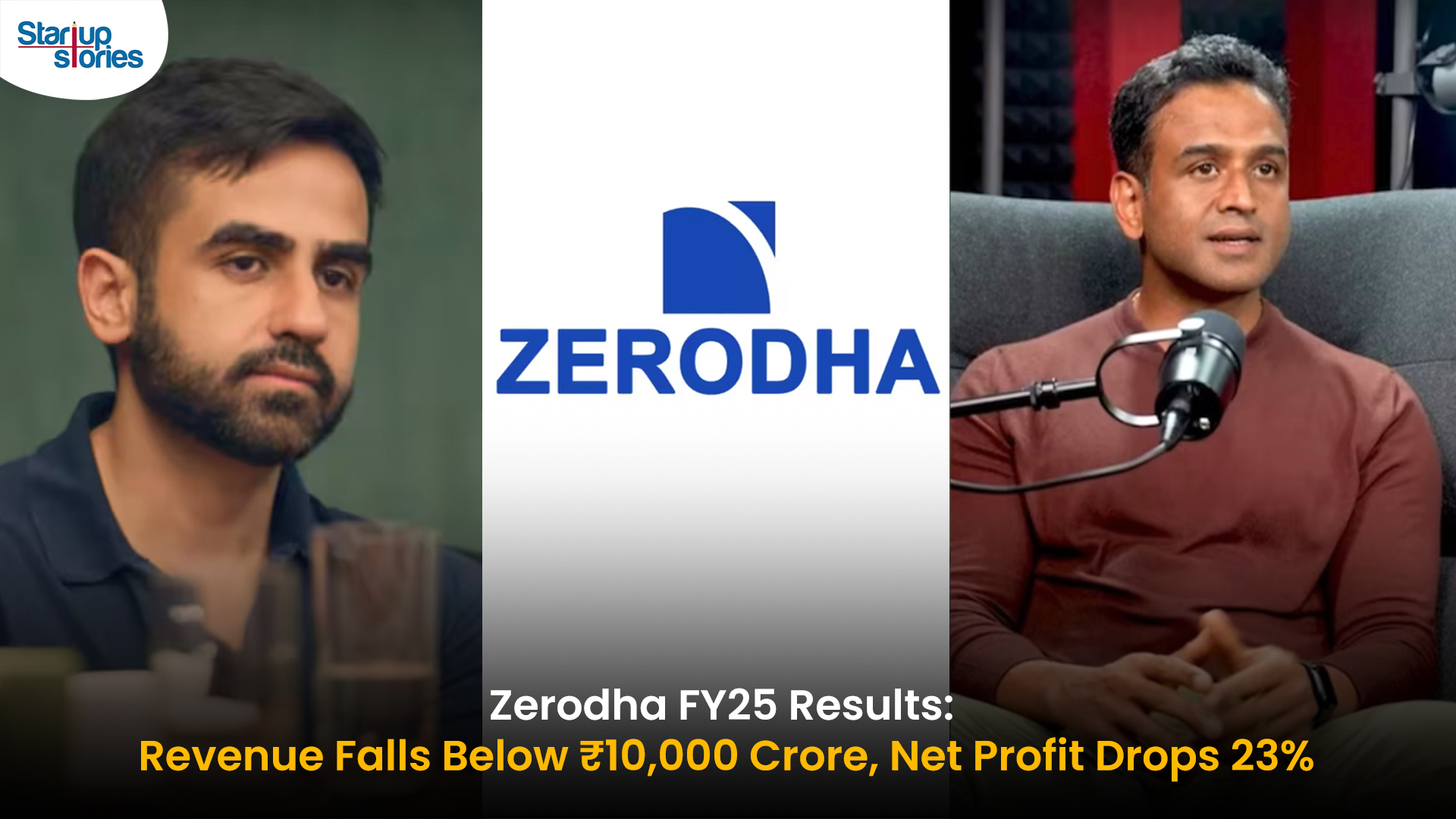Latest News
Zomato Launches Zomato Gold To Battle Swiggy’s Access

Swiggy, the online food ordering platform launched Swiggy Access to allow its restaurant partners to set up kitchen spaces in neighborhoods where they currently do not operate. This initiative will help in bringing quality food closer to consumers while enabling business expansion for its restaurant partners.
While Swiggy upped its game, Zomato also did not leave any spoon unturned. The online restaurant discovery platform launched its international paid subscription programme, Zomato Gold. This subscription based initiative is an exclusive dine out and social drinking membership programme where members can avail complimentary meals and drinks. While Zomato users will get access to complimentary food and drinks at over 1,200 highly rated restaurant partners, Swiggy users will get faster delivery as these kitchen spaces are “delivery only” branches and do not have a dine in option.
Zomato first launched the service in the UAE and Portugal earlier this year before launching it in India. At the moment, the programme is available through two membership plans. Users can pay the inaugural price of Rs. 299 for three months or Rs. 999 for 12 months. At present only Delhi NCR, Mumbai and Bengaluru based users can avail this opportunity.
Meanwhile, Swiggy’s restaurant partners will be able to expand their services to newer neighborhoods where consumers can avail a great variety of food at a lightning fast speed. Through this initiative, restaurants will also be able to optimize their kitchens for factors like stocks planning, demand forecasting, preparation time and order edits.
Although rumors suggest both the giants of the food delivery industry were in talks for a stock based merger, Swiggy denied all allegations in a statement. At present, it seems like both the startups have locked heads to capture a majority of the lucrative industry. Despite global players like UberEATS and Google trying to enter the restaurant discovery and food ordering marketplace, Swiggy and Zomato still hold the upper hand.
According to Zoamto, the company completes close to 3 million online orders per month, while Swiggy claims to complete 4 million. However, as Swiggy is still mainly a food delivering platform, Zomato reigns over the restaurant discovery business. India’s online food delivery market has grown exponentially over the past couple of years. The estimated Gross Merchandise Value (GMV) for the fiscal year 2016 was close to $300 million. While both Swiggy Access and Zomato Gold seem to be bold moves, it is yet to be seen who will wear the ultimate crown.
Latest News
Kuku FM’s $200 Million IPO: Mebigo Labs Hires Top Bankers to Lead Public Listing

Kuku FM’s parent company, Mebigo Labs, has hired leading investment banks to prepare for a 200 million dollar IPO in India, marking a major milestone for the country’s digital audio ecosystem. The Mumbai-based company has reportedly appointed Kotak Mahindra Capital, Axis Bank and Morgan Stanley’s India unit to manage the proposed share sale, which is likely to be launched on Indian stock exchanges once key regulatory steps are completed. This move signals strong intent to tap public markets and test investor appetite for subscription-led regional audio platforms in India.
The planned IPO proceeds are expected to help Kuku FM expand its content library, strengthen its regional language offerings and invest in technology to enhance user experience. With a focus on Hindi, Marathi, Tamil and other Indian languages, Kuku FM aims to capture the fast-growing audience in Tier 2 and Tier 3 cities seeking affordable audiobooks, courses and storytelling content. The funds could also provide additional firepower for marketing, partnerships and product innovation, helping the platform compete more aggressively in India’s crowded digital entertainment and creator economy landscape.
Founded in 2018, Kuku FM has built a subscription-driven business model and has reportedly scaled to millions of paying users, backed by multiple funding rounds from prominent investors. Its decision to pursue a 200 million dollar IPO positions it as one of the first major Indian audio platforms to attempt a public listing, potentially paving the way for other podcast and niche content startups to follow. As the IPO process moves forward, Kuku FM’s performance in the public markets will be closely watched as a key indicator of how investors value regional, knowledge-first audio platforms in India’s booming digital economy.
Latest News
Zerodha Reports 23% Profit Decline in FY25 as Revenues Miss Target

Zerodha experienced a challenging FY25, as its revenue fell 11.5% to ₹8,847 crore and net profit dropped 22.9% to ₹4,237 crore. This decline reflects tougher regulatory conditions, lower trading volumes, and increased operational costs in the brokerage market, all of which impacted core earning segments for the company.
Despite these headwinds, Zerodha improved its operating margin to 63.78% and built up significant cash reserves, reporting ₹22,679 crore in bank balances. Salary expenses and director remuneration increased, but disciplined cost controls helped the company maintain profitability and a debt-free balance sheet. The drop in active clients and increased compliance costs further contributed to the profit contraction.
Looking ahead, Zerodha’s resilience is supported by its robust cash position and operational efficiency. Maintaining steady margins, diversifying product offerings, and investing in technology positions the company to withstand future regulatory fluctuations and changing market sentiment reinforcing its status as one of India’s leading brokerage firms.
Latest News
Zoho Pay Debuts as India’s New UPI Challenger, Taking on PhonePe, Paytm, and Google Pay

Zoho Corporation has expanded its fintech portfolio with the launch of Zoho Pay, a UPI-based payments app built to challenge India’s top digital payment giants such as PhonePe, Paytm, and Google Pay. The new app supports peer-to-peer transfers, bill payments, QR-based transactions, and merchant settlements in a streamlined interface. Available as both a standalone app and an integrated feature inside Zoho’s privacy-driven messenger Arattai, Zoho Pay enables users to handle chats and payments in one platform, emphasizing data privacy and Made-in-India innovation.
Through seamless integration with Arattai, Zoho Pay allows users to send or request payments, split expenses, and conduct UPI-based transactions directly in their chat windows. Users can link bank accounts, scan dynamic QR codes, and receive audio confirmations of payments, ensuring speed and security. This design mirrors the simplicity of India’s leading UPI apps but is powered by Zoho’s non-advertising, privacy-first model. The integration aligns with Zoho’s mission to build a self-reliant digital ecosystem, where messaging and money management coexist securely.
In the competitive digital payments market, Zoho Pay differentiates itself through its tight business software integration with apps like Zoho Books, Zoho Payroll, and Zoho Commerce, offering small businesses unified access to payments, billing, and accounting. The company is also expanding its reach with POS devices for merchants featuring UPI QR, card payments, and instant reconciliation tools. With founder Sridhar Vembu’s vision of a ‘Chat + Pay’ ecosystem, Zoho Pay reflects a bold step toward redefining India’s fintech scene with a secure, ad-free, and locally developed alternative to global payment platforms.












Melony
March 13, 2025 at 6:51 am
Hey there! Do you know if they make any plugins to help with
SEO? I’m trying to get my blog to rank for some targeted keywords but I’m not
seeing very good gains. If you know of any please share.
Appreciate it! You can read similar article here: Code of destiny
Amy
March 27, 2025 at 2:10 am
I am really inspired together with your writing skills as well as with the layout to your blog. Is this a paid subject matter or did you customize it yourself? Either way keep up the excellent high quality writing, it is rare to see a great blog like this one nowadays. I like startupstories.in ! It is my: TikTok Algorithm
Tyrone
March 27, 2025 at 3:11 pm
I’m extremely inspired with your writing skills as neatly as with the structure on your blog. Is this a paid subject or did you customize it yourself? Anyway keep up the excellent quality writing, it’s uncommon to look a great weblog like this one nowadays. I like startupstories.in ! It’s my: Instagram Auto comment
MM88
November 6, 2025 at 9:23 am
Với giao diện mượt mà và ưu đãi hấp dẫn, MM88 là lựa chọn lý tưởng cho các tín đồ giải trí trực tuyến.
MM88
November 7, 2025 at 6:57 am
Khám phá thế giới giải trí trực tuyến đỉnh cao tại MM88, nơi mang đến những trải nghiệm cá cược thể thao và casino sống động.
iwin
November 9, 2025 at 9:12 am
iwin – nền tảng game bài đổi thưởng uy tín, nơi bạn có thể thử vận may và tận hưởng nhiều tựa game hấp
ios超级签
November 10, 2025 at 7:51 am
苹果签名,苹果超级签平台,ios超级签平台ios超级签苹果企业签,苹果超级签,稳定超级签名
GO88
November 14, 2025 at 6:59 am
Tham gia cộng đồng game thủ tại Go88 để trải nghiệm các trò chơi bài, poker phổ biến nhất hiện nay.
Kuwin
November 17, 2025 at 5:54 pm
kuwin sở hữu kho game đa dạng từ slot đến trò chơi bài đổi thưởng, mang đến cho bạn những giây phút giải trí tuyệt vời.
J88
November 26, 2025 at 4:12 am
Đến với J88, bạn sẽ được trải nghiệm dịch vụ cá cược chuyên nghiệp cùng hàng ngàn sự kiện khuyến mãi độc quyền.